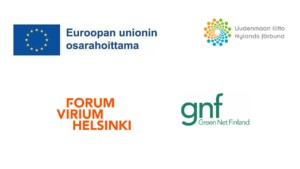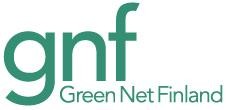The main objective of the ’ERKKI – Optimising Energy Efficiency in Challenging Public Cultural and Leisure Facilities’ project is to develop and co-create innovative, technological, and digital solutions to enhance the energy efficiency of challenging public properties, thereby increasing business opportunities for solution providers.
In many cities, a significant portion of cultural and leisure facilities, such as ice rinks, swimming pools, open-air pools, and various cultural properties, are aging and often not energy-efficient. Unlike newer buildings, older public buildings often face preservation regulations that make it difficult to make structural changes. In this project, we refer to these properties and buildings as challenging targets. However, significant energy savings can be achieved in such properties with new smart solutions.
From the perspective of companies that produce such solutions, a challenge has been the lack of dialogue with procurement units. Companies also lack essential information about the unique characteristics of these properties. It has been difficult for companies to develop products that fit these properties directly, mainly because the solutions developed for e.g. residential properties are often not directly suitable, and there has been a lack of testing platforms for new solutions. Instead of traditional technical solutions, companies should focus on digital development, incorporating new IoT solutions, better utilisation of artificial intelligence, and new methods for data collection and usage.
The ERKKI project aims to address these needs through collaborative development, piloting, and strengthening the ecosystem in the field. Simultaneously, the project aims to further explore the SRI (smart readiness indicator) model through piloting and particularly the use of robots in this context. These learnings will on their part increase the business potential for companies in the field, while improving property owners’ knowledge of available new technologies. As a result of the project, the ecosystem of actors related to the energy efficiency of challenging public properties will grow, fostering a network of developers around these challenges. Regional RDI activities will also get a boost from the increased interaction between different stakeholders. As companies gain a deeper understanding of the specific requirements of these properties, it will lead to smarter, tailored solutions, which can also be scaled to similar properties elsewhere, even internationally. In addition, public authorities will gain reinforcement and new perspectives on innovative procurement methods related to the project’s theme, which will streamline procurement processes and generate better-tailored solutions while strengthening cooperation with businesses.
The ERKKI project aligns with multiple regional, national, and EU strategies. It strongly supports the Uusimaa Smart Specialisation Strategy, which emphasises the significance of digital technologies and applications as one of the drivers of sustainable development. The project’s objectives also reflect the Climate Neutrality Priority within the strategy. Furthermore, the project supports the Uusimaa Regional Programme, the Baltic Sea Strategy, and is in line with the Ministry of the Environment’s long-term strategy for the renovation of buildings. At the same time, the project’s implementation takes into account the horizontal principles of sustainable development and equality in the ERDF program. The project is co-funded by the Regional Development Fund of the European Union.
Quick facts:
Project Duration: 1.3.2024-31.8.2026.
Project Partners: Green Net Finland (Lead Partner) and Forum Virium Helsinki
Project is co-funded by the Regional Development Fund of the European Union (ERDF).
Project budget total is 456 000 €. Green Net Finland’s part is totally 155 000€

